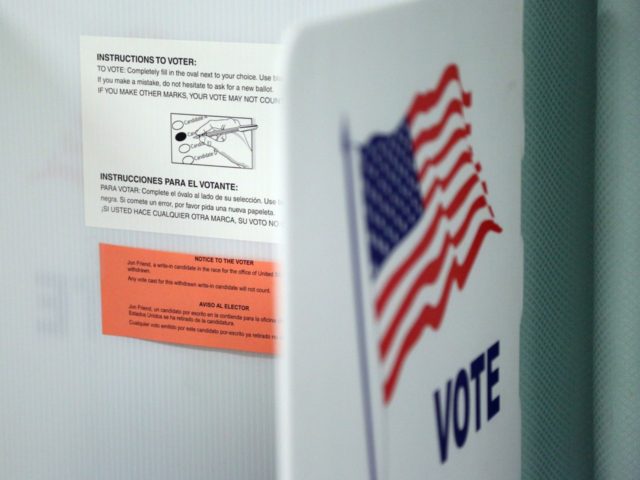Thousands of Wisconsin poll workers said they will not work next Tuesday as the state refuses to delay voting and moves forward with election day during the deadly coronavirus pandemic.
“I’m scared,” said 43-year-old Angie Copas, who suffers from high blood pressure and asthma. “On Election Day, we’re exposed to them and everyone they come across. I’m the only person in the office and I run it all.”
The New York Times noted:
As of Tuesday, roughly 7,000 had said they would not work, and 111 precincts did not have a single poll worker on the schedule, meaning that many locations could be forced to close. In response, Gov. Tony Evers, a Democrat, said on Wednesday that he would deploy National Guard troops to work at understaffed polling sites. Wisconsin law dictates that each site must have at least three election workers.
Earlier this week, 27 clerks signed and sent a letter written by Barbara Goeckner, a clerk from the village of Cambridge, to Evers explaining their concerns over the election and cited their health conditions.
“Clerks, deputy clerks, election staff and volunteers have been working 24/7 these past two weeks to register voters and mail absentee ballots out to everyone who has made a request,” Goeckner wrote in the letter. “In doing so, all involved are putting themselves and their families at risk.”
Melissa Baldauff, a spokeswoman for Evers, said his office was making an attempt to get protective equipment to offices across the state.
“Keeping people safe is the governor’s top priority,” Baldauff said. “He has also been very clear in his belief that our democracy has to continue.”
While Evers issued a “stay at home” order last week, he and the Republican-controlled legislature have both pledged to move forward with April 7, 2020, elections.
Ms. Goeckner, a lady in her 50s who does not have a spleen and donated a kidney eight years ago, said she is more concerned with the health of others than her own. Goeckner’s husband, who also serves as a clerk, oversees a 91-year-old poll worker who said she will show up on Election Day if voting takes place.
“We’re not listed as essential workers, but basically being considered essential workers,” Goeckner said. “We’re not complaining as clerks. I want people to understand the risk that’s being asked and the fact that I believe there are other safe alternatives to take in this stage.”
Heather DuBois Bourenane, the chief inspector for Sun Prairie who is in her late 40s, had originally planned to work on Election Day so her older colleagues could remain at home, but she has now changed her mind.
“Being complicit in putting public safety at risk seems a greater guilt to bear than letting democracy down,” Bourenane said. “That guilt should fall on the shoulders of our lawmakers.”
Shellie Benish, a clerk from the village of Black Earth, has proposed using plastic wrap at voting booths by using sheets where people fill out ballots and discarding it after each voter. For early voting, she has been using the glass door at her office.
“If someone does come in, we do not let them in,” Benish said. “We talk to them through the door. We have a table outside with the ballots. They fill it out, and then they slide it in underneath the door so that there’s no contact. We’re keeping that distancing, keeping our staff safe. We only have two in my front office, and they’re well over 60.”
Tuesday’s election in Wisconsin will feature a presidential primary between former Vice President Joe Biden and Sen. Bernie Sanders (I-VT), and a general election for 3,831 local offices, which includes Milwaukee mayor, Milwaukee County executive and a state Supreme Court seat.
Follow Kyle on Twitter @RealKyleMorris and Facebook.

COMMENTS
Please let us know if you're having issues with commenting.